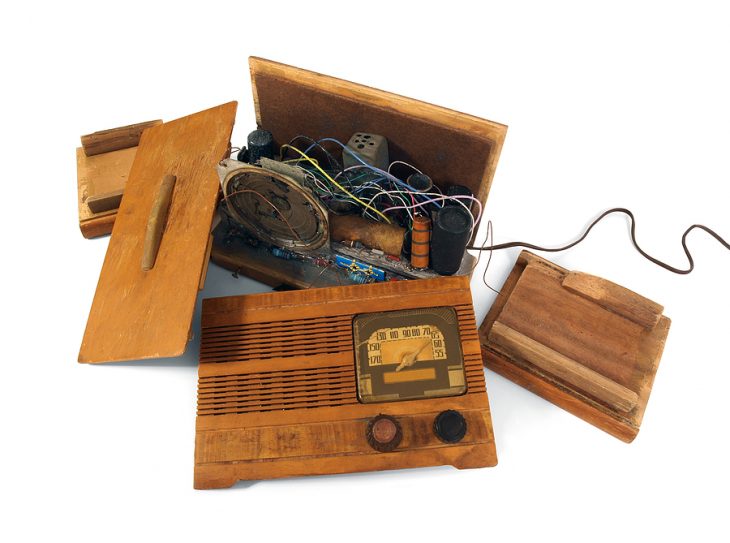
By Greg O’Brien
WHILE RADIO IS NOWHERE near the big media dog it was years ago, having the mic on a morning show somewhere is still considered a sign you’ve “made it” as a host and personality.
And while the radio business in Canada has shrunk, leading radio companies to cut costs over the years by syndicating late nights, evening and mid-day shows, and voice-tracking weekends, most stuck with local, loved, live hosts in the morning and afternoon “drive-time” slots, even in small markets.
That era, too, is now drawing to a close, due mostly to the Covid-19 pandemic and the dramatic decline in radio revenues as local businesses, whose ad dollars are radio’s lifeblood, are shuttered. Radio was probably headed in this direction anyway, but the effects of the pandemic looks like its accelerating the decimation of local radio content, especially at smaller market radio stations owned by big broadcasters.
Bell Media’s iHeartRadio Canada announced this week it has replaced the local morning show at Pure Country 89 in Windsor, Ont. with the Nashville-based syndicated Bobby Bones Show, starting Monday, December 14th.
The company dropped the station’s old branding (it was a rock station called 89X), letting go some on-air staff, in November and replaced it with Pure Country. Bones’s show was already airing in the morning in Windsor since then, but not live. Bell also switched its Windsor station The River 93.9 to its national Virgin Radio brand last month. It’s currently host-free, with only music airing, according to its website.
Bell’s Vernon B.C., Sun FM also made the switch to Pure Country and its local hosts were let go. Bones airs from 9 a.m.-12 p.m. now in Vernon.
From 6-to-10 a.m. each morning in Windsor, host Bones and “his co-hosts Amy, Lunchbox, and Eddie welcome the biggest names in country music and entertain listeners with their unique mix of pop-culture news and information, crazy stunts, and hilarious conversations,” says the Bell Media release this week.
With Windsor’s geography of course, the show and format may well prove popular with listeners (and potentially, advertisers) in Detroit, where there is just a single country station (99.5 WWYCD)
This is the first extension of the live morning show into the Canadian market and first switch from a local, live, morning show to a U.S.-syndicated one for Bell Media’s now 16-station chain of Pure Country branded stations. The Bobby Bones show does air already on all of the stations, mostly at 7 p.m. It broadcasts to more than 170 stations and is the top country morning show in the U.S. with millions of weekly listeners, says the Bell Media release.
“This has allowed us to stretch our marketing dollars and programming across common brands.” Nikki Moffat, Bell Media
This move is not something peculiar to Bell, however. Rogers Sports & Media let go many staffers in Northern Ontario recently, including news readers and its morning show hosts at its Kiss FM stations Timmins, Sudbury, North Bay and Sault Ste. Marie, replacing them with Roz & Mocha, who host the Toronto Kiss FM morning show (Ed note: And likely only play local Timmins content when they air a Shania Twain song…).
This switch in Windsor is just the beginning for Bell Media, according to its president of local radio and TV, Nikki Moffat. She told the Canadian Telecom Summit in November that Pure Country is a strategy to hold down costs while somehow creating “more content” and better engaging Canadians.
“Radio reflects the communities in which it is found. Our radio stations reach more than 16 million listeners every week. 92% of Canadians listened to radio on a weekly basis, and I do want to stress that stat is pre Covid. As we know radio is significantly seeing the pressures of this pandemic as more and more people are working remotely, radio is a constant companion that shapes your mood and shifts your thinking,” she said.
“It takes that great radio personality to connect you to your community and to help you understand a different point of view, as a one listener of Magic 100 in our Ottawa station said, ‘as an essential worker, I want to thank you for keeping these heavy times light. I honestly don’t know what my days would be like if I didn’t listen to Magic 100’, and there are countless examples of listeners like that, who have reached out to us.”
The pandemic, she continued, “has forced us to innovate on radio as well… forced us to try new ways of delivering an audio experience remotely. We’ve also looked at ways to leverage brands nationally while keeping a local presence and connection with our communities. Pure Country is an excellent example of that.
“This has allowed us to stretch our marketing dollars and programming across common brands, pivoting resources from a digital creation role to content creation, again, allowing us to stretch our resources while producing more content. All of these new initiatives are certainly byproducts of the challenging environment in local radio, but also very much needed for our listeners. As they’re demanding more of an audio experience.”


